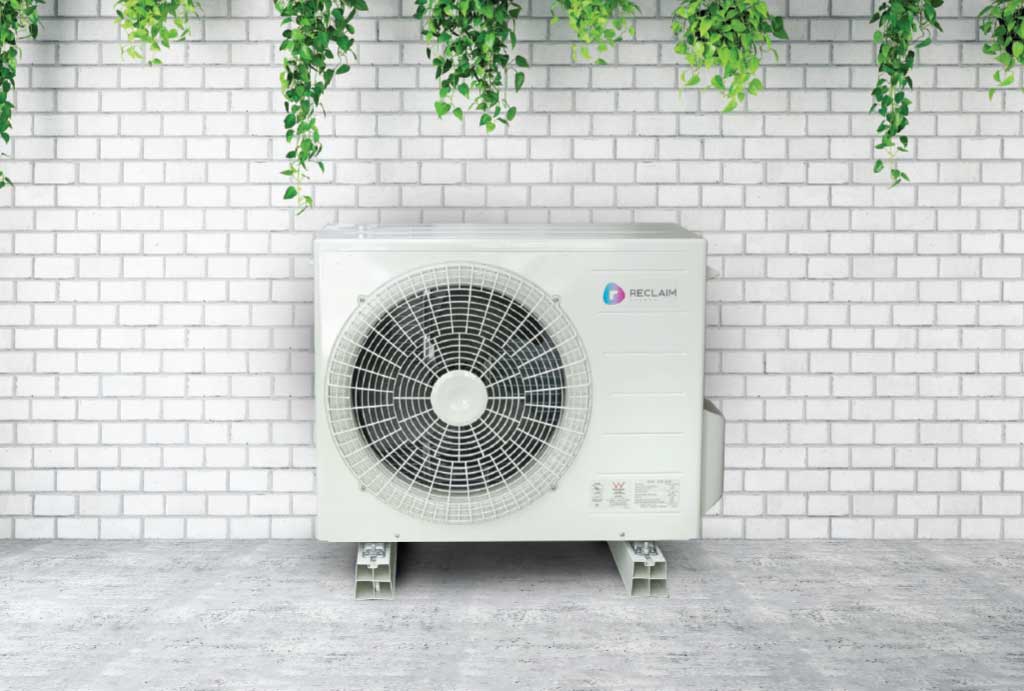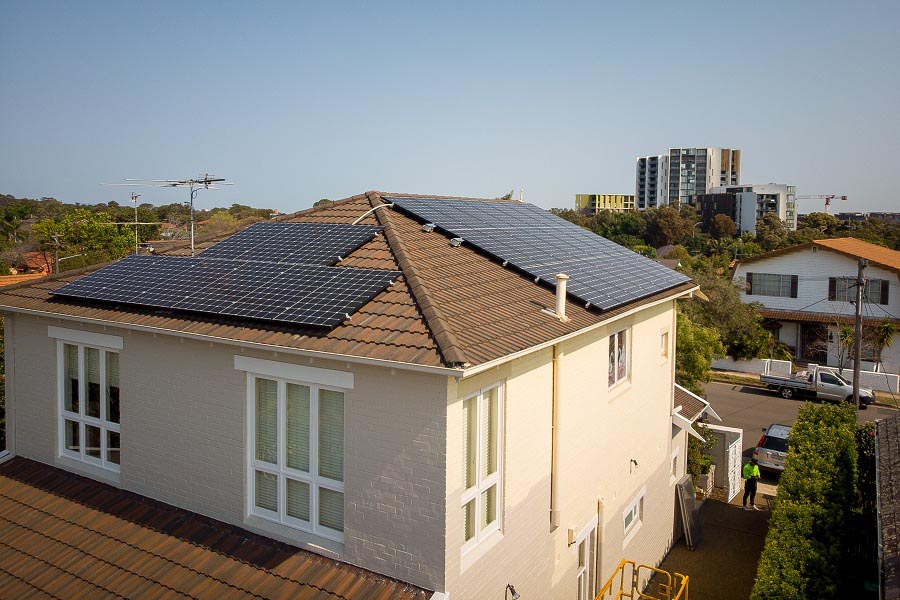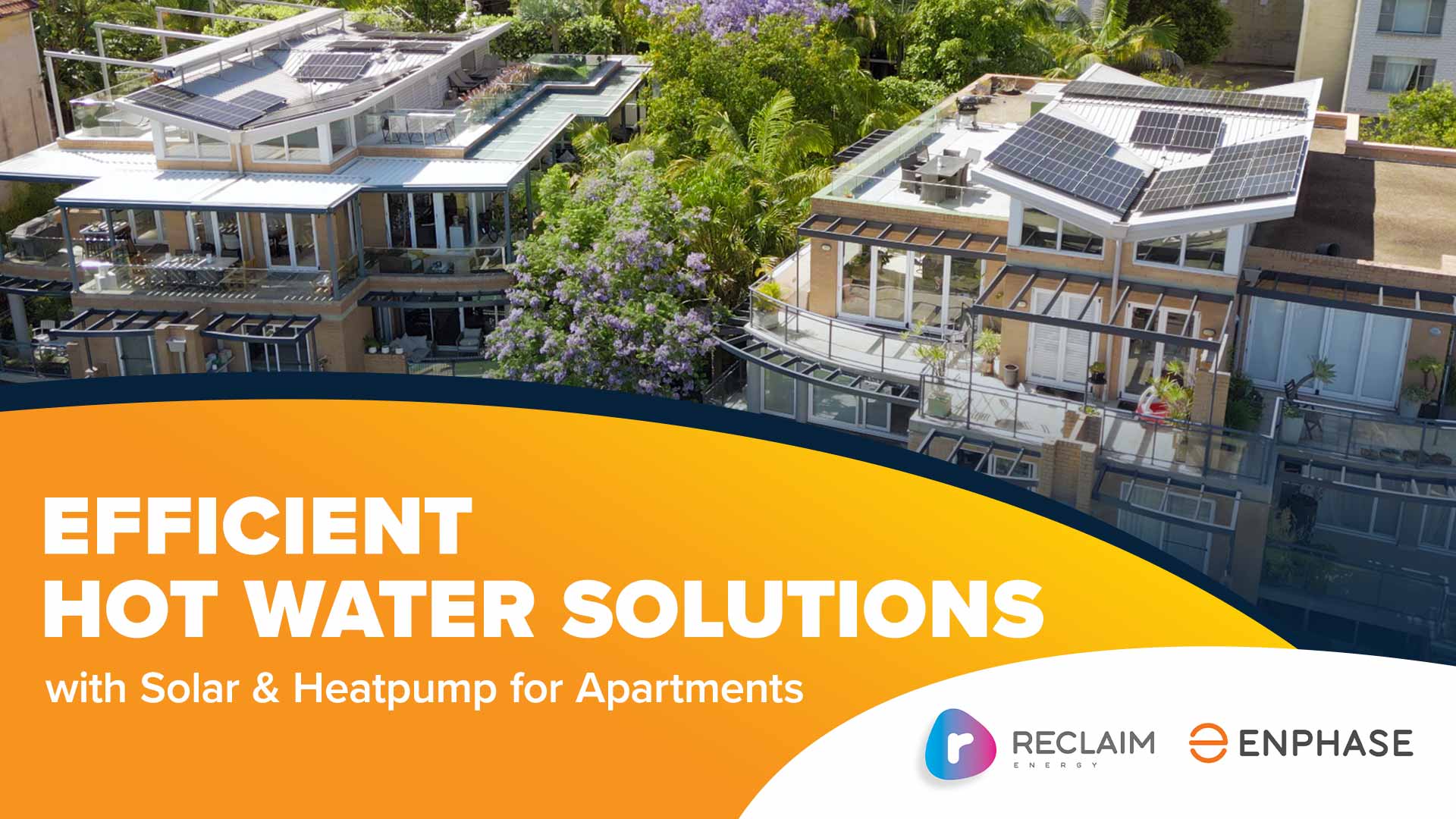EFFICIENT HOT WATER
BETTER WAY TO HEAT YOUR HOT WATER
Say goodbye to gas and welcome efficient hot water solutions! In Australia, we’re gradually moving away from the traditional use of gas and electric hot water systems. This shift isn’t just fueled by environmental concerns but also by the soaring costs of gas and electricity, which pose a threat to our overall quality of life.
While there are various alternative hot water solutions available, such as solar, evacuated tubes, and close-coupled systems, they do come with their own set of limitations. Take solar panels, for instance; they’re increasingly taking up roof space, which might make these systems less appealing for heating our hot water.

INTRODUCING HEAT PUMP SOLUTION
The concept of heat pumps has been around for a long time, but the modern development and application of heat pumps can be traced back to the mid-20th century. The first heat pump for residential heating and cooling was introduced in the 1940s. However, the widespread adoption of heat pumps as a popular solution for hot water and space heating took some time to gain traction.
Over the years, advancements in technology, improvements in efficiency, and a greater focus on environmental sustainability have further propelled the popularity of heat pumps.
EFFICIENCY
Heat pumps stand out as remarkably efficient solutions for hot water needs. Unlike traditional hot water heaters, heat pumps utilise electricity to transfer heat from the air or ground to the water, eliminating the need to generate heat independently. This innovative approach makes them up to four times more efficient than conventional electric hot water heaters and up to twice as efficient as their gas counterparts.
By harnessing the principles of heat transfer, heat pumps maximise energy utilisation, providing a cost-effective and environmentally friendly alternative. Their efficiency not only translates to lower energy bills but also contributes significantly to reducing overall carbon footprints, making them a compelling choice for those seeking both economic and sustainable solutions for hot water heating.


ENVIRONMENTALLY FRIENDLY
Heat pumps emerge as a more environmentally friendly choice compared to other hot water solutions. One key factor is their operation without emitting any pollutants or greenhouse gases, contributing to a substantial reduction in carbon footprints.
Traditional hot water heaters, especially those relying on fossil fuels, release emissions during the heating process, negatively impacting air quality and exacerbating climate change. In contrast, heat pumps draw on renewable electricity to transfer heat, minimising environmental harm.
Additionally, the eligibility of heat pumps for government rebates and incentives encourages their adoption, further promoting sustainability by making eco-conscious choices financially accessible. Overall, the environmental benefits of heat pumps extend beyond efficient hot water production, positioning them as a responsible and forward-thinking solution.
COMBINE IT WITH SOLAR
When a heat pump hot water solution is combined with solar energy, the environmental and efficiency advantages are magnified. Solar panels generate electricity from the sun, which can be seamlessly integrated to power the heat pump. This synergy allows the heat pump to operate independently of grid-generated electricity, reducing reliance on conventional energy sources and cutting down on electricity bills.
Moreover, the excess solar energy can be stored in batteries, ensuring a continuous and sustainable supply of hot water even during periods of low solar production or at night. The amalgamation of heat pumps with solar energy not only enhances efficiency but also significantly diminishes the overall carbon footprint associated with hot water production. This tandem approach represents a powerful and eco-conscious solution, aligning with the growing emphasis on sustainable living and renewable energy practices.

THE FUTURE OF HOT WATER IS HERE
GOVERMENT REBATES
The New South Wales (NSW) government offers rebates to households that replace their old, inefficient hot water systems with heat pumps or solar hot water systems. These rebates are part of the NSW government’s Energy Savings Scheme (ESS), which is designed to help households save money on their energy bills and reduce their greenhouse gas emissions.
To be eligible for a rebate, households must replace their existing electric or gas hot water system with a new heat pump or solar hot water system that meets certain energy efficiency requirements. The amount of the rebate depends on the type of hot water system that is installed. For example, a household that installs a heat pump hot water system can receive a rebate of up to $1,000.
In addition to the NSW government rebates, there are also federal government rebates available for heat pumps and solar hot water systems. These rebates can be combined with the NSW government rebates to provide households with even greater savings.

